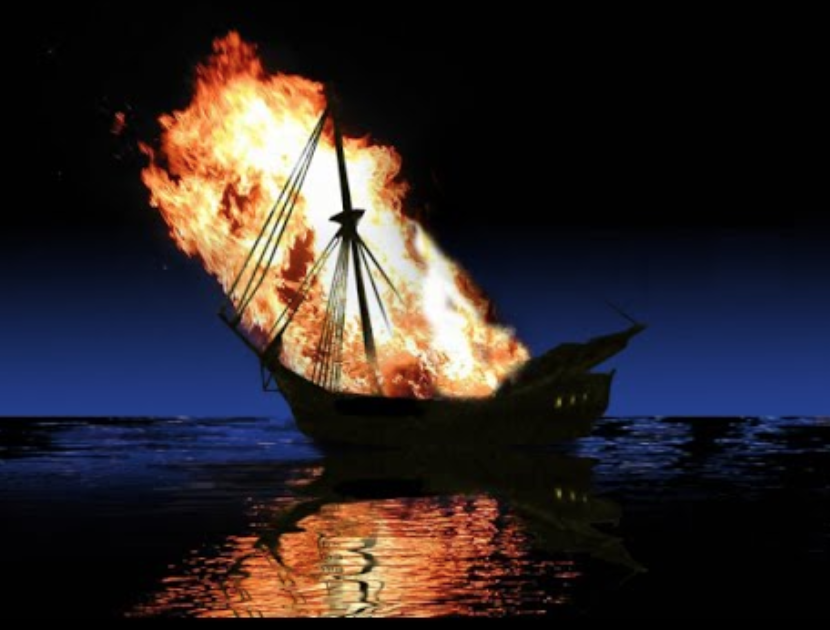
“Commitment is an act, not a word!”
Jean Paul Sarte
I think it was in Jr. High School that I heard the story about Hernan Cortez. In 1519 his fleet landed in Veracruz to begin the great conquest of the Aztec Empire. Upon arriving he gave an order to burn the ships. There would be no going back. One officer made the mistake of questioning the order. He was immediately slain by Cortez. The story goes that the rest of his army drank the rum on the beach as they watched the glow of the fleet burning in he harbor. A lesson in servant leadership? No, but another equally important lesson was demonstrated. Retreat or changing direction is easy when you have an option. Some would say, we all need an exit strategy or a safety net just in case. Too often the “just in case” is nothing but fear. We postpone our actions while we wrestle with the fear of taking action. The key is learning to act decisively, in spite of our fear.Travis Robertson examines this idea in his post, Burn the Ships: A Leadership Lesson from Cortez Our careers often provide frequent, some might say too frequent, situations in which committed decisions must be made. These decisions could be as complex as changing leadership or organizational vision, or as simple as taking time off to be with our family. Robertson believes that to truly achieve the level of success we each desire, there are times we need to “burn the ships.” The real challenge however is asking ourselves, “What are my ships? What am I afraid to let go of?
Robertson asks us to consider a question as we ponder this challenge, “Why is this ship hard to burn?” Is it a sense of false obligation? Is it fear of how others will perceive us? Is it fear of the unknown or change? The first four ships are his, I’ve added a few.
- Your Current Job – Are you comfortable? Are you convinced that you’ve “arrived”? Are you uncomfortable with trying something new?
- Your Field of Employment – Is this what you always dreamed of doing? Do you look forward to doing what you do? Do you feel drained? Are you making a difference?
- A Bad Deal – Why is it a bad deal? Why can’t you let go? Do you feel obligated? If you “let go,” will there be collateral damage?
- An Unrealistic Dream – Is this a dream or a fantasy? Do you have the skills necessary to achieve this dream? Can this dream be modified into something achievable?
- Relationships – What prompted this relationship? Have you become a better person as a result of it? Where is this relationship leading and will it be good for all parties?
- Habits/Routines – Am I getting enough sleep? Do I need to get to the gym? How do I end and begin my day? Do my habits and routines help me become a better person?
Like Cortez, we have set out on a journey. His goal was to defeat an empire. Our journey is simply called life, and it will be filled with many ports, but like him we have many ships in our fleet. All are filled with different experiences that will serve to influence the decisions we will make. Cortez burned all of his ships so that there was no retreat. While we may not burn all, we must have the courage to burn those that are compromising us from realizing our potential, from becoming the person who looks in the mirror and says, “Aye Captain, it was a good journey!”
Embrace the Challenge!
